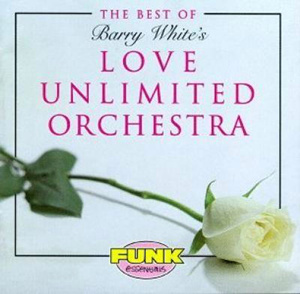(单词翻译:单击)

Nobody knows what the world is going to look like when the things around us get smarter -- when more and more of them are equipped with tiny radios that are connected to the Web.
没有人知道,当我们周围越来越多的物品安装了联网的微型无线信号接收器,从而变得越来越智能化时,世界会变成什么样。
Which is what makes the so-called Internet of Things(IoT, per Wikipedia) so interesting, especially now that Google (GOOG) and Apple (AAPL) have begun to show their hands.
所谓的“物联网”(按照维基百科的说法叫Internet of Things, LOT)正是因此妙趣横生,尤其是现在,谷歌(Google)和苹果(Apple)也要开始大显身手了。
Google has been experimenting with Internet-connected eye glasses, and in January it spent $3.2 billion to acquire Nest Labs, the leading purveyor of smart thermostats and smoke detectors. With Nest, it also got Tony Fadell, an ambitious ex-Apple engineering VP whose previous claim to fame was the iPod.
谷歌正在测试联网眼镜。今年1月,这家公司以32亿美元收购了智能恒温控制器和烟雾探测器的领先制造商Nest Labs。随着Nest而来的,还有雄心勃勃的前苹果工程副总裁托尼o法德尔,他曾因iPod广为人知。
Apple has been seeding its stores with iBeacons -- miniature BlueTooth detectors for communicating with iPhones -- and it is rumored to be set to unveil, perhaps as early as next week's developers conference, two new platforms: One for monitoring your health and one for controlling your home.
苹果也在着手打造iBeacons,这是一款用于与iPhone通信的微型蓝牙探测器。还有传闻表示,苹果最快可能会在下周的开发者大会上公布两个新平台:一个用于监控人们的身体健康状况,另一个用于管理人们的房间。
Who will make tomorrow's smart devices and how they will interact with one another is anybody's guess.
人们都在猜测,谁将会是未来智能设备的生产商,他们又将如何同其他设备进行互动。
"One vision," writes Benedict Evans, a partner at Andreessen Horowitz, "is that all these devices will work on common, open standards, and talk to each other and interact in clever ways. And so, if you walk into the house with someone your security camera doesn't recognise and your calendar mentions 'date', some sort of unified learning-based system will dim the lights, turn up the thermostat and start playing Barry White."
风险投资公司安德森o霍洛维茨基金(Andreessen Horowitz)合伙人本尼迪克特o埃文斯写道:“有种观点认为,所有这些产品都将按照共同的开放标准设计,彼此能够以智能的方式进行沟通和互动。如此一来,如果你与一位监控摄像机无法识别的人走进房间,而你的日历中写着‘约会’,那么某种一体化的学习型系统就会调暗灯光、打开恒温器,同时播放巴里o怀特悠扬性感的乐曲。
The Barry White scenario is unlikely, Evans points out, given the history of earlier technologies that achieved First World ubiquity -- the small electric motor, for example, or the computer chip. They generally don't share data unless they come packaged in a single device -- a well-eqipped automobile, for example.
不过埃文斯指出,根据在发达国家实现过的那些早期技术的先例——比如小型电动机或电脑芯片,这种巴里o怀特式的情景不太可能出现。各种产品通常不会共享数据,除非它们被安装在同一种设备中——比如装备齐全的汽车。
Apple and Google would love to be the company that cashes in on -- or at least controls -- whatever turns out to be IoT equivalent of a modern automobile, with its hundreds of integrated chips and battery-powered activators. But they're approaching it from different angles -- angles that play to each's strengths.
苹果和谷歌希望利用成百上千的集成芯片及使用电池的激活器,从好比是一辆智能汽车的物联网中获利,或者至少获得对它的掌控权。不过他们实现目标的途径不同——双方正在从各自的强项入手。
"Many wearables feel like they should be satellites for a smartphone," writes Evans, "either as a remote sensor or a remote display, but the value ... comes from the cloud-based analytics: is it more useful to know how many hours you slept or to get big-data based suggestions as to when you should go to sleep and when you should set your alarm? iBeacon is [a] fascinating part of this dynamic, because iBeacons themselves are not connected to anything, but they add intelligence to the physical world. So every wall or retail display or suitcase or package can become a piece of data.
埃文斯写:“许多可穿戴设备都认为自己应当成为智能手机的卫星产品,无论是充当它的遥感器还是远程显示器,但是它们的价值……产生于以云为基础的分析能力:知道你每天要睡多少小时;或是从大数据中得到建议:应当何时入睡,应当设置几点的起床闹钟,这样是不是更加有用?iBeacon在这个过程中有着令人着迷的表现。因为它们并不与其他产品相连,却给物质世界带来了智能。如此一来,每一堵墙、每一排零售陈列柜、每一只手提箱、每一个包裹都能成为一部分数据。”
"That is, sometimes the device is dumb glass (or a dumb sensor), driven by the cloud. And sometime the cloud is dumb storage, driven by the device.
“也就是说,有时设备只是一块被云驱动的不能说话的玻璃(或不能说话的感应器)。而有时云则是由设备驱动的傻瓜式存储器。”
"There's an interesting Apple/Google dynamic here," writes Evans. "If most of these 'things' are some combination of smartphone satellite and cloud end-point, where is the value and control? Apple's hardware/software integration means it's best-placed to make things work well, but Google is better placed to do much of the cloud stuff."
埃文斯说:“苹果和谷歌的发展动向非常有趣。如果大多数‘物件’都只是智能手机的卫星产品和云的终端,那如何实现价值和控制?苹果有着集成化的硬件和软件,意味着他们最适合让物品各司其职,不过谷歌则更擅长云系统的相关工作。”


